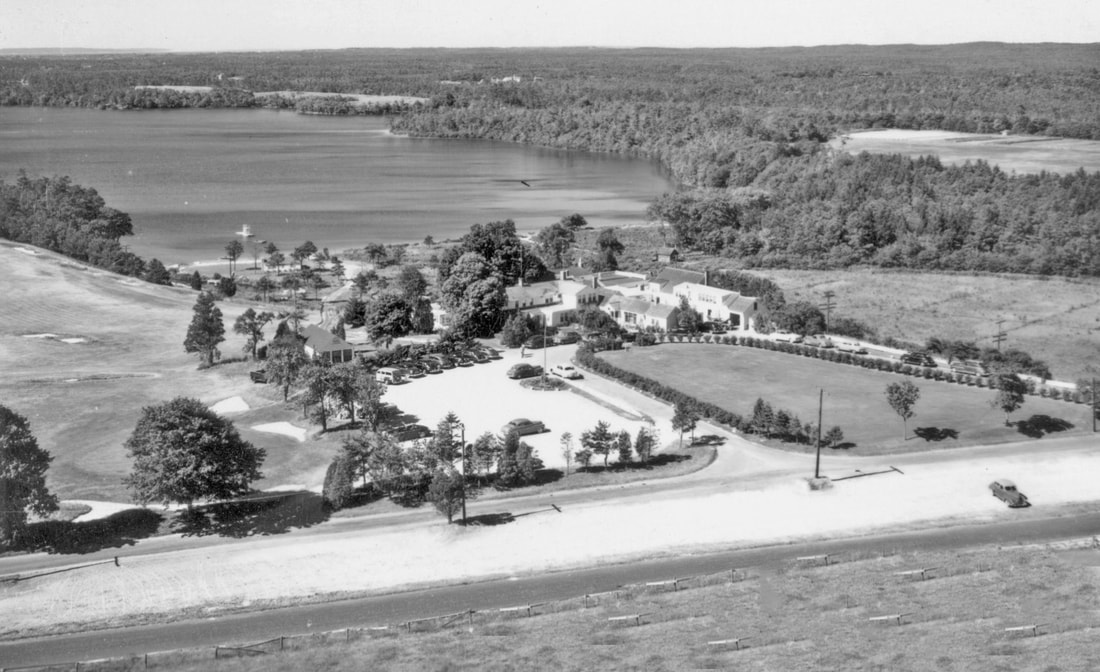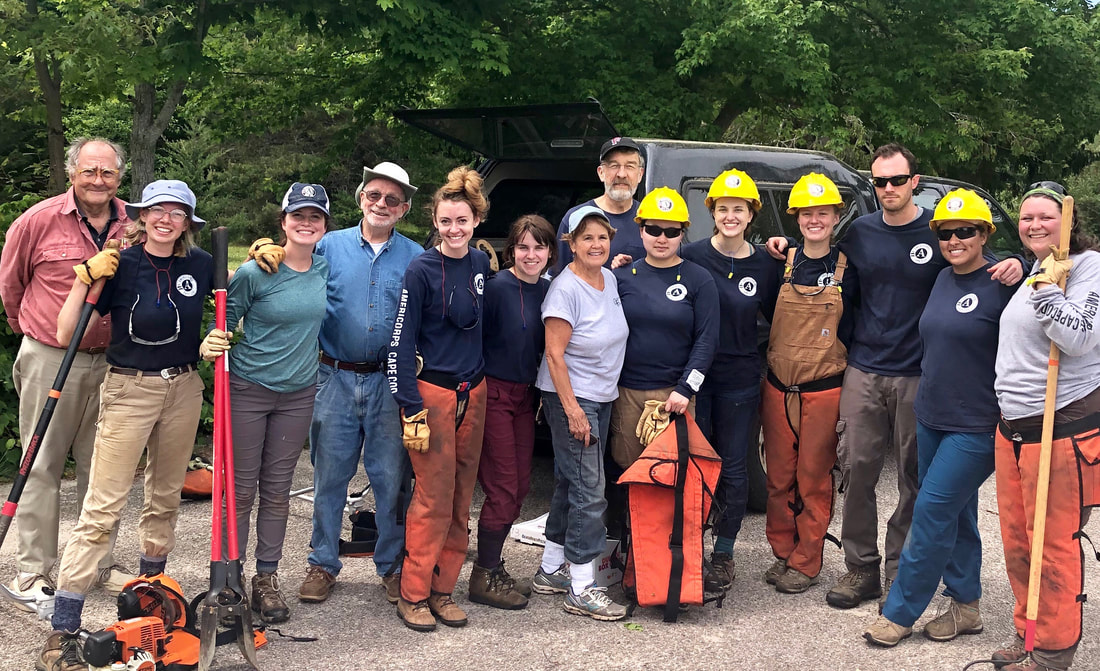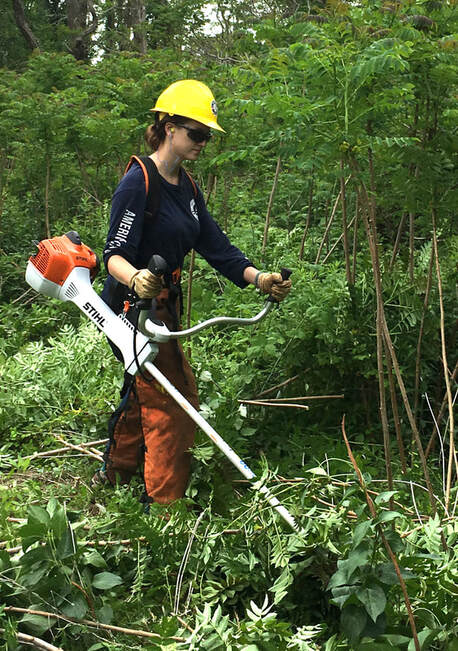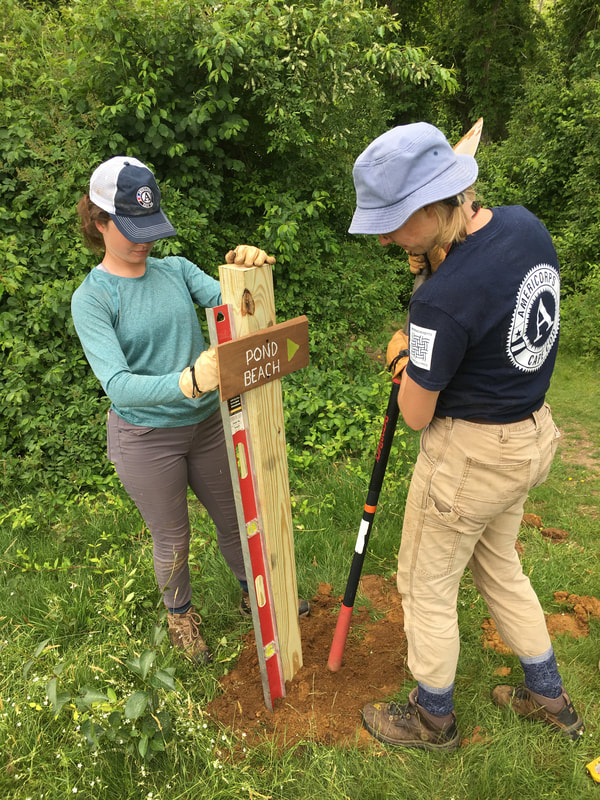Information Regarding Proposed Solar Project
Dear Members and Friends of the Coonamessett Pond Association,
The Falmouth Town Planning Board is currently taking comments on a proposed conversion of the Cape Cod Country Club golf course into a ground-mounted solar electric array. The CPA strongly supports this proposal as the best possible long-term outcome for the health of the pond.
After months of careful consultation with our members, neighbors, environmental experts and the solar developers themselves, the CPA has come to believe that the conversion of the golf course into solar array would not only bring no harm to the pond, but it would prevent other, more harmful uses of the land such as high-density housing.
The health of many Cape Cod ponds is at risk due to over-development, but Coonamesssett Pond remains in good health. We are pleased to share that Amp, the solar company, has committed to taking additional steps to ensure the health of the pond and local environment. These include:
Opposition to the proposal has, however, already come to light, and it threatens the success of this environmentally responsible project and the health of our pond.
FAQs
Is it possible for the land to just remain a golf course for recreational enjoyment?
The owners of the Cape Cod Country Club, a privately owned business, have indicated that they no longer wish to operate the golf course. Business has not been strong, and they are seeking alternative uses for the land. While we have enjoyed our country club neighbors, we must consider the next best options for the eastern shore of the pond.
The solar proposal indicates that 16 acres of trees may be cut down. Won’t this have a negative environmental impact?
The developer has indicated that they can reach maximum solar electric generation if the arrays can be arranged without negotiating around many of the trees that currently stand between fairways. The developer will re-plant an equivalent acreage of trees in habitat adjacent to the pond and woodland. While they provide shade and beauty, the replacement of the current trees with trees of more valuable ecological species in prime locations is likely to provide far better habitat in the long term.
What is the carbon cost of cutting down trees?
Trees provide an important function in carbon capture – one acre of forest sequesters as much as 75 tons of carbon. By contrast, it takes two acres of solar panels just one year to offset this amount of carbon compared to fossil-fuel based electric generation. The proposed project would produce as much as 30 MW per year (which is equivalent to having four solar panels on the roof of every house in Falmouth). This means that within its first year, the proposed solar array would far exceed the carbon capture of the trees being replaced. Within 30 years, the replanted seedlings will also be back at full carbon sequestration capacity.
Does this open the door to more development of the land when the solar array is gone?
The land on which the golf course sits is zoned Agriculture-A, which would currently permit housing development as dense as 1-acre lots, or even more if the 40B statutes were utilized. However, the solar company has indicated that, if the proposal is successful as proposed, they would work with the Town to place the land into conservation at the end of the lifetime of the solar array. In the meantime, the land would be available for recreational use via a mapped trail system connecting trails to the north and south.
Why would additional housing threaten the pond?
Many Cape Cod ponds are under threat due to stormwater runoff, invasive species, pollutants from human activities like pesticides and fertilizers and effluent from our septic systems that seeps down to the groundwater that feeds ponds. Cyanobacteria, also called blue-green algae, are commonly found in ponds; however, under certain conditions, they can produce toxins that pose health issues to animals and humans. Warmer temperatures with excessive nutrients, such as those from septic systems, contribute to toxic blooms that make swimming and other contact dangerous for people and pets.
Why is the CPA getting involved?
The CPA and 300 Committee were, in fact, formed in 1985 in response to a proposal to convert this golf course and a larger portion of Hatchville into a 225-unit 336-acre subdivision to be named “The Country Club on Coonamessett.” Fortunately, that did not occur then, but a version of that could occur in the future if a plan to permanently preserve that land is not enacted. We are committed to preserving the ecology, beauty and recreational opportunities that our 158-acre Coonamessett Pond provides for present and future generations of our Hatchville neighbors and Falmouth.
Dear Members and Friends of the Coonamessett Pond Association,
The Falmouth Town Planning Board is currently taking comments on a proposed conversion of the Cape Cod Country Club golf course into a ground-mounted solar electric array. The CPA strongly supports this proposal as the best possible long-term outcome for the health of the pond.
After months of careful consultation with our members, neighbors, environmental experts and the solar developers themselves, the CPA has come to believe that the conversion of the golf course into solar array would not only bring no harm to the pond, but it would prevent other, more harmful uses of the land such as high-density housing.
The health of many Cape Cod ponds is at risk due to over-development, but Coonamesssett Pond remains in good health. We are pleased to share that Amp, the solar company, has committed to taking additional steps to ensure the health of the pond and local environment. These include:
- Preserving all standing trees bordering the pond, an offset exceeding the 100’ limit required by the Conservation Commission;
- Offsets of lost trees and replanting in high habitat-value locations near the pond;
- Prohibiting the use of fertilizers and other chemicals that degrade pond water quality and planting wildflower gardens in lieu of chemical weed control;
- Designing an environmentally sensitive, publicly accessible trail network developed in cooperation with the CPA’s trail advisory commitee and other stakeholders; and
- Committing to financially underwrite the most significant pond water quality monitoring system anywhere on Cape Cod, in cooperation with the CPA.
Opposition to the proposal has, however, already come to light, and it threatens the success of this environmentally responsible project and the health of our pond.
FAQs
Is it possible for the land to just remain a golf course for recreational enjoyment?
The owners of the Cape Cod Country Club, a privately owned business, have indicated that they no longer wish to operate the golf course. Business has not been strong, and they are seeking alternative uses for the land. While we have enjoyed our country club neighbors, we must consider the next best options for the eastern shore of the pond.
The solar proposal indicates that 16 acres of trees may be cut down. Won’t this have a negative environmental impact?
The developer has indicated that they can reach maximum solar electric generation if the arrays can be arranged without negotiating around many of the trees that currently stand between fairways. The developer will re-plant an equivalent acreage of trees in habitat adjacent to the pond and woodland. While they provide shade and beauty, the replacement of the current trees with trees of more valuable ecological species in prime locations is likely to provide far better habitat in the long term.
What is the carbon cost of cutting down trees?
Trees provide an important function in carbon capture – one acre of forest sequesters as much as 75 tons of carbon. By contrast, it takes two acres of solar panels just one year to offset this amount of carbon compared to fossil-fuel based electric generation. The proposed project would produce as much as 30 MW per year (which is equivalent to having four solar panels on the roof of every house in Falmouth). This means that within its first year, the proposed solar array would far exceed the carbon capture of the trees being replaced. Within 30 years, the replanted seedlings will also be back at full carbon sequestration capacity.
Does this open the door to more development of the land when the solar array is gone?
The land on which the golf course sits is zoned Agriculture-A, which would currently permit housing development as dense as 1-acre lots, or even more if the 40B statutes were utilized. However, the solar company has indicated that, if the proposal is successful as proposed, they would work with the Town to place the land into conservation at the end of the lifetime of the solar array. In the meantime, the land would be available for recreational use via a mapped trail system connecting trails to the north and south.
Why would additional housing threaten the pond?
Many Cape Cod ponds are under threat due to stormwater runoff, invasive species, pollutants from human activities like pesticides and fertilizers and effluent from our septic systems that seeps down to the groundwater that feeds ponds. Cyanobacteria, also called blue-green algae, are commonly found in ponds; however, under certain conditions, they can produce toxins that pose health issues to animals and humans. Warmer temperatures with excessive nutrients, such as those from septic systems, contribute to toxic blooms that make swimming and other contact dangerous for people and pets.
Why is the CPA getting involved?
The CPA and 300 Committee were, in fact, formed in 1985 in response to a proposal to convert this golf course and a larger portion of Hatchville into a 225-unit 336-acre subdivision to be named “The Country Club on Coonamessett.” Fortunately, that did not occur then, but a version of that could occur in the future if a plan to permanently preserve that land is not enacted. We are committed to preserving the ecology, beauty and recreational opportunities that our 158-acre Coonamessett Pond provides for present and future generations of our Hatchville neighbors and Falmouth.
CPA PROJECTS
One of the missions of the Coonamessett Pond Association is that of stewardship in the wonderful parcels surrounding the pond. This involves trash pickup, trail clearing, and educational programs. It also involves new initiatives and new projects. Such an initiative began in December 2017, when we partnered with the Town of Falmouth, the 300 Committee, and AmeriCorps to do a site clearing and trash pickup at the former Coonamessett Inn site on the hill at the north end of the pond. Since then, the adjacent Cape Cod Country Club has joined the partnership and has done a wonderful job of regular mowing.
Future plans include placing of native and other plants, and installing an educational kiosk (similar to the one we did for the Atamannsit barn site in the Dupee parcel. In concept, this site and the educational/historical display will be part of the Coonamessett Greenway Heritage Trail. History, conservation, and open space combine in this wonderful parcel―at 212 acres, it was the first open-space parcel purchased by the Town of Falmouth.
On the broader scale, we are continuing to explore options for mitigation of vandalism and littering. Several members of CPA pitched in with trash pick-up, removal and dump- runs! Volunteer efforts are central to the mission, and we will be putting out a call for folks who are willing and able to help. A small effort by a large number of people will accomplish a great deal. Success will require a continuing effort.
Part of this continuing effort is our “Green Walks” program. With the arrival of summer and good weather, and the need for at least some of us to exercise and lose weight―let’s do our Green Walks! Walk the trails or roadside, carry a bag for trash pickup, maintain the environment, get fresh air and exercise, and as a bonus, get in shape and lose weight. This is a two-for-one deal: good for you and good for the environment.
Below are some examples:
Future plans include placing of native and other plants, and installing an educational kiosk (similar to the one we did for the Atamannsit barn site in the Dupee parcel. In concept, this site and the educational/historical display will be part of the Coonamessett Greenway Heritage Trail. History, conservation, and open space combine in this wonderful parcel―at 212 acres, it was the first open-space parcel purchased by the Town of Falmouth.
On the broader scale, we are continuing to explore options for mitigation of vandalism and littering. Several members of CPA pitched in with trash pick-up, removal and dump- runs! Volunteer efforts are central to the mission, and we will be putting out a call for folks who are willing and able to help. A small effort by a large number of people will accomplish a great deal. Success will require a continuing effort.
Part of this continuing effort is our “Green Walks” program. With the arrival of summer and good weather, and the need for at least some of us to exercise and lose weight―let’s do our Green Walks! Walk the trails or roadside, carry a bag for trash pickup, maintain the environment, get fresh air and exercise, and as a bonus, get in shape and lose weight. This is a two-for-one deal: good for you and good for the environment.
Below are some examples:
Dupee Parcel
"The purchase of 61.6 acres in Hatchville from the Dupee family in 2002 was another step in the town’s efforts to preserve land on Coonamessett Pond and the Coonamessett River. The Dupee property is bounded by Sandwich and Hatchville Roads and the Coonamessett River. Frontage on the pond offers a small beach for swimming. The property connects with the Matt Souza Conservation Area and, across Hatchville Road, town-owned cranberry bogs and The 300 Committee’s Toner parcel.
Although the property is dense with trees and an understory of briars and huckleberry, the foundations of an old dairy barn and silo serve as a reminder of the large dairy farms that dominated Hatchville in the last century. Atamannsit Road, the private lane that leads to the houses along Coonamessett Pond, takes its name from one of the leading dairy farms.
In 2005, the Falmouth Conservation Commission and The 300 Committee prepared a management plan for the Dupee land, which included the creation of a trail system. Trails are accessed from the nearby Matt Souza Conservation Area, with parking at the entrance.
"The purchase of 61.6 acres in Hatchville from the Dupee family in 2002 was another step in the town’s efforts to preserve land on Coonamessett Pond and the Coonamessett River. The Dupee property is bounded by Sandwich and Hatchville Roads and the Coonamessett River. Frontage on the pond offers a small beach for swimming. The property connects with the Matt Souza Conservation Area and, across Hatchville Road, town-owned cranberry bogs and The 300 Committee’s Toner parcel.
Although the property is dense with trees and an understory of briars and huckleberry, the foundations of an old dairy barn and silo serve as a reminder of the large dairy farms that dominated Hatchville in the last century. Atamannsit Road, the private lane that leads to the houses along Coonamessett Pond, takes its name from one of the leading dairy farms.
In 2005, the Falmouth Conservation Commission and The 300 Committee prepared a management plan for the Dupee land, which included the creation of a trail system. Trails are accessed from the nearby Matt Souza Conservation Area, with parking at the entrance.
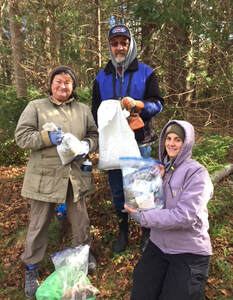
There are two trails leaving from the parking area. One is to the north and parallels Matt Souza. It is hilly and has several loop choices. Finding the entrance to the second trail requires more attention. It is blazed and heads east out of the parking area for a short distance to end on Hatchville Road. Turn left onto the road, pass Atamannsit Road, then pick up the trail where it heads north from Hatchville Road. This is a meandering trail that ends at a small beach area on Coonamessett Pond.
In the winter of 2014, 300 Committee volunteers and a crew from AmeriCorps Cape Cod did extensive clearing work to expose the foundations of historical structures on the Dupee property. The adjacent meadow was also opened up, with the removal of invasive species, to increase the diversity of habitat on the conservation land."
** 300 Committee Website
In the winter of 2014, 300 Committee volunteers and a crew from AmeriCorps Cape Cod did extensive clearing work to expose the foundations of historical structures on the Dupee property. The adjacent meadow was also opened up, with the removal of invasive species, to increase the diversity of habitat on the conservation land."
** 300 Committee Website
Coonamessett Inn Site
The original Coonamessett Inn stood off Boxberry Hill Road on the north side of the pond from the 1920s to the 1970s. The parcel was among the first to be acquired by the Town for open space. We are working in partnership with the 300 Committee, the Town of Falmouth, AmeriCorps, and the Cape Cod Country Club to maintain this area for purposes of open space, recreation, conservation.
"This hotel had its origin in the farmhouse of William Chadwick, built in 1826 on the north side of Coonamessett Pond in Hatchville. Prior to World War I the property, eventually some 15,000 acres, was bought by the Crane family of Woods Hole to establish the Coonamessett Ranch Co. This house was the home of the ranch manager until 1926, when it was leased to Mrs. Jane Jordan as an inn. In 1930, Edna L. Harris leased it and until 1953 ran it most successfully as the Coonamessett Inn. In 1953, the Crane family refused to renew her lease on the property in favor of giving it to the Treadway Inns, which successfully operated the Publick House in Sturbridge, the Williamstown Inn in Williamstown, MA and others."
To keep learning about the history of the Coonamessett Inn, go to museumsonthegreen.org/wp-content/uploads/Hotels-Inns-of-Falmouth-by-Arnold-Dyer-1993.pdf, and Garrick, Les. 2014. Historic Hatchville: Horse and Farm Country on Cape Cod. History Press. 206 pp.
**Taken from Hotels & Inn of Falmouth, by Arnold Dyer.
The AmeriCorps team at a workday at the site of the former Coonamessett Inn in Hatchville on June 7, 2019. Middle picture: Jim Hain, stewardship chair, Coonamessett Pond Association, on the left; Dave Jewett, Coonamessett Pond Association, 4th from left; Donna Jewett, president, Coonamessett Pond Association, 7th
from left; Mark Kasprzyk, Conservation Commission, Town of Falmouth, 8th
from left; and Meredith Ballinger, program coordinator, AmeriCorps, right. Not shown, Alex Zollo, the 300 Committee
from left; Mark Kasprzyk, Conservation Commission, Town of Falmouth, 8th
from left; and Meredith Ballinger, program coordinator, AmeriCorps, right. Not shown, Alex Zollo, the 300 Committee
